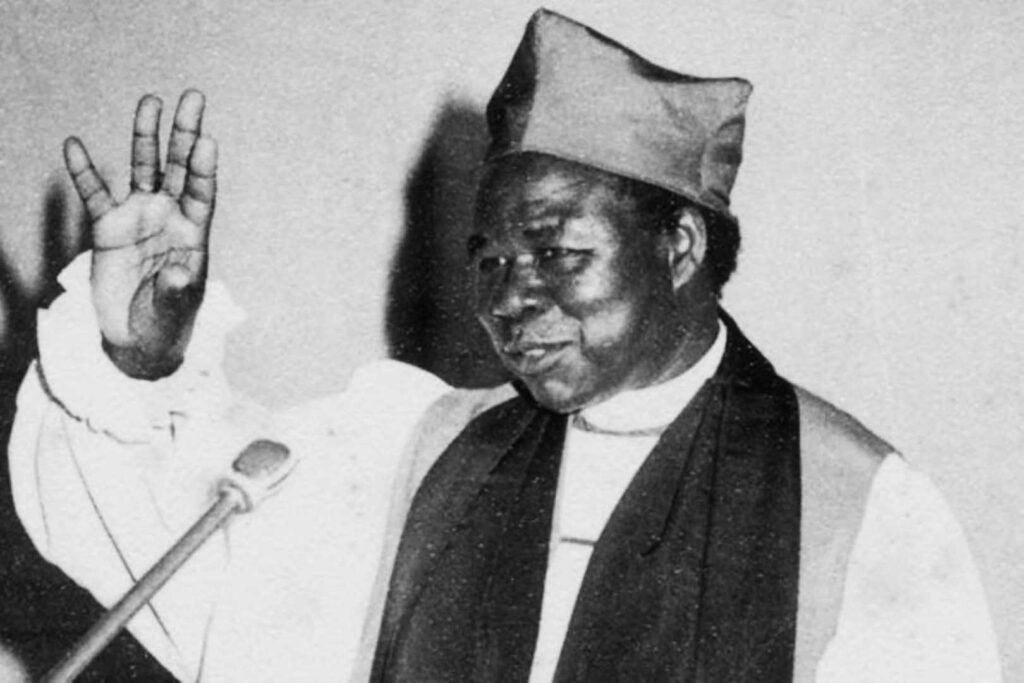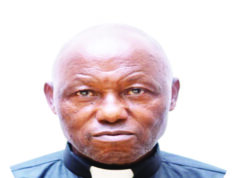By Can Grace Kaiso
The Bible says: Surely the Lord God does nothing unless He reveals His secret to His servants, the prophets. (Amos 3:7 NKJ).
February 16th is celebrated by Ugandans as Janani Luwum’s day. The former Archbishop of Uganda, now a martyr, is celebrated for his witness as a Christian leader.
The path that led him to martyrdom was different from that of the Namugongo martyrs.
For them, the decision point was whether they denounce Christ and save their lives; for Luwum, it was more of a response to the demands of leadership.

Luwum, Church & state
Leadership is about how one uses that position to respond to the obligations of the office.
Luwum found himself in circumstances that demanded his action in form of obedience to what he sensed to be God’s will.
He was called to leadership as Archbishop of the Church of Uganda during the period when Idi Amin was the President of Uganda.
It is generally recognised that both the Church and the State share the obligation to uphold human dignity, justice and social well-being of every citizen.
The state has the added responsibility of creating an enabling environment for the citizens to thrive, irrespective of their ethnic, political or religious affiliation in terms of security, access to resources, and opportunities.
On the other hand, the Church must address itself to conditions that deny the fullness of life that God desires for all His people (John 10:10).
Political leaders, like Church leaders, often find themselves in St Paul’s dilemma: “For I have the desire to do what is good, but I can’t carry it out” (Romans 7:18).
Paul here highlights the reality that he struggles to keep God’s standards, even as a Christian, because of the sinful capacity that paralyses him from doing what he knows is right.
This is the state brought about by the Adam’s disobedience. Paul is introducing the idea that some leaders fail because of this inherent human weakness, but we also know that some leaders choose to use their positions to serve their selfish ambitions and consequently fail the people and their institutions in their aspirations for a secure and thriving nation.
The Bishop’s letter
When the state fails to fulfil its mandate, it has far-reaching negative consequences on the welfare of the people.
This was the case during the reign of President Amin.
We get a glimpse of disturbing issues in the country from the letter that Archbishop Luwum and his fellow bishops wrote to Amin:

“… The gun which was meant to protect Uganda as a nation, the Ugandan as a citizen and his property, is increasingly being used against the Ugandan to take away his life and his property.
“Many cars almost daily are being taken at gunpoint and their owners killed, and most of the culprits are never brought to justice.
“We have buried many who have died as a result of being shot and there are many more whose bodies have not been found.
“Their disappearance relates to the activities of some members of the security forces, your Excellency… Too much power has been given to members of state research to arrest and kill at will innocent individuals.
“There is also a war against the educated that is forcing many of our people to run away from this country despite what the country has paid to educate them.
“This brain drain, the fear and the mistrust make development, progress and stability almost impossible.”
In an environment like that, the Church is challenged to act as per the Gospel imperative John 10:10.
As the custodian of life, it is called to protect people from the enemies of life, such as disease, famine, insecurity, injustice, among others.
It has a responsibility to call the state to order and remind it of its divine calling (John 5:3, 1 Peter 1:17, Deuteronomy 10:17-19 and 16:18, Jeremiah 23:3, Psalm 45:4-8).
The Church under fire
The Church has options in the way it expresses her discontent. The leaders may use shuttle diplomacy to raise their concerns in boardrooms, they may publicly condemn the actions of the state that undermine human dignity or may express their discontent through pastoral letters and statements.
In rare cases, they may adopt the ostrich syndrome of attending to other issues apart from those that undermine human dignity.
Archbishop Luwum and his colleagues opted to publicly express their discontent and to write a letter pointing out the issues of concern and calling on the president to act.
They chose not to cover up the sores and wounds in the body politic and not to call on the people to merely cope with the existing problems.
As a leader of the sheep, he could not abandon the Lord’s sheep to the wolves (Ezekiel 33:3-9).
Such is our calling as Christians today, our suffering on the path of obedience is not any kind of suffering, it represents a choice, a way freely chosen.
It might lead to death, but as Jesus has demonstrated, death during obedience is not the end, it is a pathway to the resurrection and everlasting life.
Contact: +256 772 483 845
gracekaiso@gmail.com





















